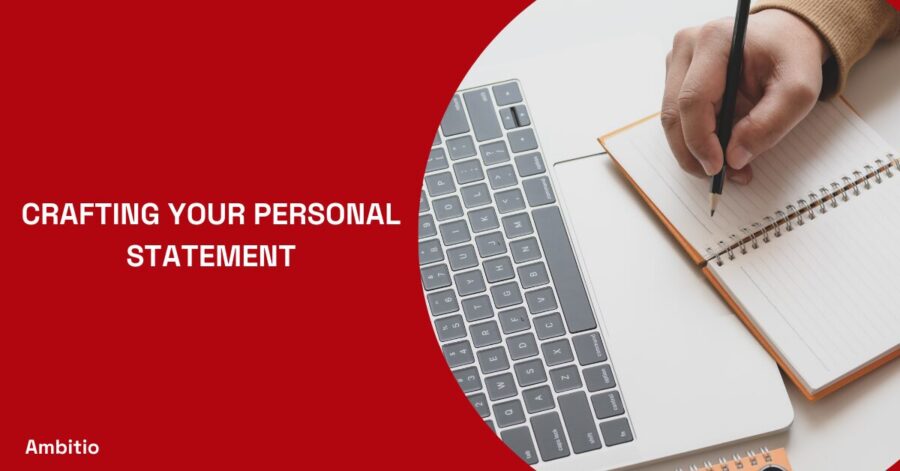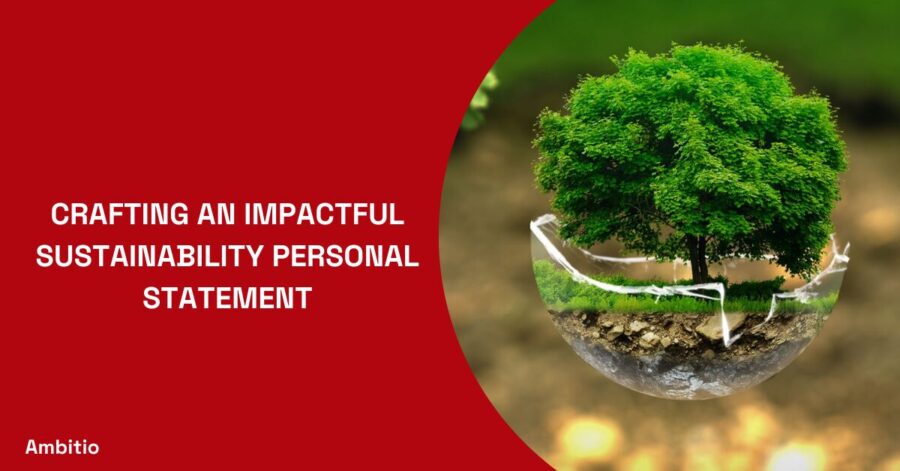13 December 2024
7 minutes read
Crafting a Personal Ethics Statement Essay: A Comprehensive Guide

Creating a Personal Ethics Statement Essay
A personal ethics statement is a declaration of your beliefs and values. It serves as a mirror reflecting your personal view of ethics, morals, and the decisions you make daily.
Life experiences, religious beliefs, and family influence all contribute to the formation of your personal ethics. This guide will walk you through the necessary steps to craft an effective personal ethics statement essay and discuss the importance of personal and professional ethics in your life.
Components of a Personal Ethics Statement
A personal ethics statement typically encompasses the following components:
- Introduction: This section should introduce your personal ethics, ethical principles, and the values you hold dear. Explain how your upbringing, life experiences, and the people in your life have contributed to your current belief system.
- Body: This section is the heart of your personal ethics essay. Elaborate on your values and ethical issues that are most important to you. Discuss how these ethics and morals guide your decisions and actions in every aspect of your life, both personal and professional.
- Conclusion: Summarize your personal ethics statement, emphasizing the key points and explaining how your ethics will play a role in your future decisions, professional growth, and relationships.
Tips for Crafting Your Personal Ethics Statement Essay
While writing your personal ethics statement essay, keep in mind the following tips:
- Be Authentic: Your ethics statement should reflect your true beliefs and values. Avoid listing ethics you feel you “should” have, and instead focus on the ethical guidelines and moral principles that genuinely resonate with you.
- Be Specific: Provide examples of situations where your ethics have guided your decisions or helped you distinguish between right and wrong. These examples can be from your personal or professional life.
- Reflect: Take time to reflect on your experiences and how they have shaped your ethical code. Consider how your ethics may evolve in the future and the impact they may have on your personal and professional relationships.
Importance of Personal and Professional Ethics
Ethics are fundamental to every aspect of your life. They guide your decisions and actions, affect your relationships with others, and influence your self-respect.
Personal ethics are formed through family influence, religious beliefs, and life experiences. Professional ethics, on the other hand, are the ethical standards and code of conduct that you adhere to in a professional setting. Both personal and professional ethics are crucial for maintaining ethical behavior and a clear understanding of right and wrong.
Interrelation between Personal and Professional Ethics
The interrelation between personal and professional ethics is significant in shaping an individual’s character and conduct. Here are some insightful points:
- Values Alignment: Personal ethics often influence professional ethics. When personal values align with organizational values, it fosters a sense of purpose and commitment in one’s work.
- Trustworthiness: Consistency between personal and professional ethics builds trust. Colleagues and clients are more likely to trust individuals who demonstrate integrity in both spheres.
- Decision-Making: Personal ethics serve as a foundation for ethical decision-making at work. Moral principles developed in personal life guide choices in professional dilemmas.
- Reputation: Personal behavior can impact professional reputation. Unethical actions in personal life can tarnish one’s professional image and credibility.
- Stress Reduction: Harmonizing personal and professional ethics reduces cognitive dissonance and stress. When actions align with beliefs, it enhances well-being.
- Leadership Example: Leaders who exemplify strong personal ethics inspire ethical behavior throughout their organizations, fostering a culture of integrity.
- Conflict Resolution: An individual’s personal ethics can aid in resolving ethical conflicts at work. It provides a framework for addressing disagreements and finding solutions.
- Long-Term Success: Individuals with a strong ethical foundation tend to have more sustainable professional careers. Ethical lapses can lead to setbacks and even legal issues.
- Adaptability: Personal ethics can evolve over time, influencing how one adapts to changing professional environments and ethical standards.
- Legal Implications: Personal ethical breaches can have legal repercussions in professional settings, emphasizing the need for alignment.
In essence, personal and professional ethics are intertwined, and recognizing this connection is crucial for ethical development and success in both personal and professional life.
The Role of Family and Religion in Shaping Personal Ethics
Family and religious beliefs play a significant role in shaping one’s personal ethics. From a young age, families impart values and morals, influencing one’s perception of right and wrong. Religious beliefs often provide a set of ethical guidelines and principles that individuals adhere to in their daily lives.
Family Influence
The family is often the first and most influential socializing agent in one’s life. Parents, siblings, and extended family members contribute to shaping one’s personal ethics in various ways:
- Teaching Values: From a young age, parents teach their children fundamental values such as honesty, kindness, and respect. These values form the foundation of a child’s personal ethics.
- Modeling Behavior: Children often mimic the behavior of their parents and other family members. If parents model ethical behavior, children are more likely to adopt similar ethical standards.
- Discussions and Debates: Family discussions about ethical issues, current events, or hypothetical scenarios can help children develop critical thinking skills and form their own opinions about what is right and wrong.
- Setting Expectations: Families often set expectations for behavior, which can influence a child’s sense of right and wrong. For example, a family that values hard work and perseverance may instill a strong work ethic in their children.
Religious Influence
Religion plays a crucial role in shaping personal ethics for many individuals. Religious teachings often provide a framework for understanding the world and making ethical decisions:
- Ethical Guidelines: Many religions have specific guidelines about what is considered right and wrong. For example, the Ten Commandments in Christianity provide a set of ethical guidelines for followers.
- Moral Stories: Religious texts often contain stories that illustrate moral lessons. These stories can help individuals understand and internalize ethical principles.
- Community Influence: Being part of a religious community can also influence one’s personal ethics. The shared beliefs and values of the community can reinforce one’s personal ethics.
- Spiritual Reflection: Religion often encourages self-reflection and mindfulness, which can help individuals gain a deeper understanding of their values and ethical principles.
Interplay between Family and Religion
Family and religion often intersect, and their influences on one’s personal ethics can be intertwined. For example, a family’s religious beliefs often influence the values they teach their children. Conversely, an individual’s personal ethics may influence their religious beliefs and practices.
It is important to reflect on how your family and religious beliefs have influenced your personal ethics and how they continue to guide your decisions and actions.
Understanding the role of family and religion in shaping your personal ethics can help you gain a deeper understanding of yourself and the values you hold dear.
Navigating Ethical Dilemmas with Your Personal Ethics
Ethical dilemmas often arise in both personal and professional settings. Having a clear understanding of your personal ethics can help you navigate these dilemmas and make decisions that align with your values and ethical principles. When faced with an ethical dilemma, consider the following:
- Identify the Dilemma: Clearly define the ethical dilemma you are facing. What are the conflicting values or interests at play?
- Consider the Options: Evaluate all possible options and the potential consequences of each. Consider how each option aligns with your personal ethics.
- Make a Decision: Based on your evaluation, make a decision that aligns with your personal ethics and is the most appropriate course of action.
- Reflect: After making a decision, take time to reflect on the outcome. Did it align with your personal ethics? Would you make the same decision again?
Being a Role Model through Ethical Behavior
Being a role model means exhibiting ethical behavior in all aspects of your life. Your actions and decisions influence those around you, whether you realize it or not.
By adhering to your personal ethics and making decisions that reflect your values and ethical principles, you can inspire others to do the same. Consider the following tips to be a role model through ethical behavior:
- Lead by Example: Demonstrate ethical behavior in all your actions and decisions. Be consistent in your actions, whether in personal or professional settings.
- Be Accountable: Take responsibility for your actions and decisions. If you make a mistake, acknowledge it, and take steps to rectify it.
- Be Transparent: Be open and honest in your communication with others. Share your thought process and the reasons behind your decisions.
- Encourage Ethical Behavior: Encourage others to act ethically by acknowledging and rewarding ethical behavior.
Reflecting and Updating Your Personal Ethics Statement
Your personal ethics may evolve over time due to new experiences, changes in your belief system, or shifts in your perspective on ethical issues.
It is essential to periodically reflect on and update your personal ethics statement. Consider the following steps to reflect on and update your personal ethics statement:
- Reflect on Your Experiences: Take time to reflect on your experiences and how they have influenced your personal ethics. Have you encountered any ethical dilemmas that challenged your beliefs? Have your values or ethical principles evolved?
- Evaluate Your Current Ethics Statement: Review your current personal ethics statement. Does it still accurately reflect your values and ethical principles? Are there any areas that need updating or revising?
- Update Your Ethics Statement: Based on your reflection and evaluation, update your personal ethics statement to accurately reflect your current values and ethical principles.
- Seek Feedback: Share your updated personal ethics statement with a trusted friend, family member, or mentor. Seek feedback on whether your statement accurately reflects your values and ethical principles.
- Implement Your Updated Ethics Statement: Apply your updated personal ethics statement to your daily life and decision-making. Reflect on how your updated ethics influence your actions and decisions.
Conclusion
In conclusion, crafting a personal ethics statement essay is not only an exercise in self-awareness but also a guide that can profoundly influence your decisions and actions, both personally and professionally.
Your personal ethics are a reflection of your character and play a critical role in your interactions, your approach to ethical dilemmas, and your role as a model for others.
Therefore, it is crucial to take time to reflect on your values, consider the influence of family and religion, navigate ethical dilemmas, and continuously update your personal ethics statement.
Remember that your personal ethics are not set in stone; they may evolve and adapt as you grow and learn. Hence, revisiting and revising your personal ethics statement is an essential practice in your journey of self-development and professional growth.
FAQs
What is a personal ethics statement?
A personal ethics statement is a declaration of your core values and ethical principles that guide your decisions and actions.
Why is a personal ethics statement important?
It helps you gain a clear understanding of your values and ethical guidelines, guiding your decisions and actions in both personal and professional settings.
How do I write a personal ethics statement essay?
Start by reflecting on your values, ethical principles, and life experiences that have shaped your beliefs. Then, organize your thoughts into an introduction, body, and conclusion, elaborating on your values and providing specific examples.
Can my personal ethics evolve over time?
Yes, your personal ethics may evolve due to new experiences, changes in your belief system, or shifts in your perspective on ethical issues. It is essential to periodically reflect on and update your personal ethics statement.

You can study at top universities worldwide!
Get expert tips and tricks to get into top universities with a free expert session.
Book Your Free 30-Minute Session Now! Book a call now




























